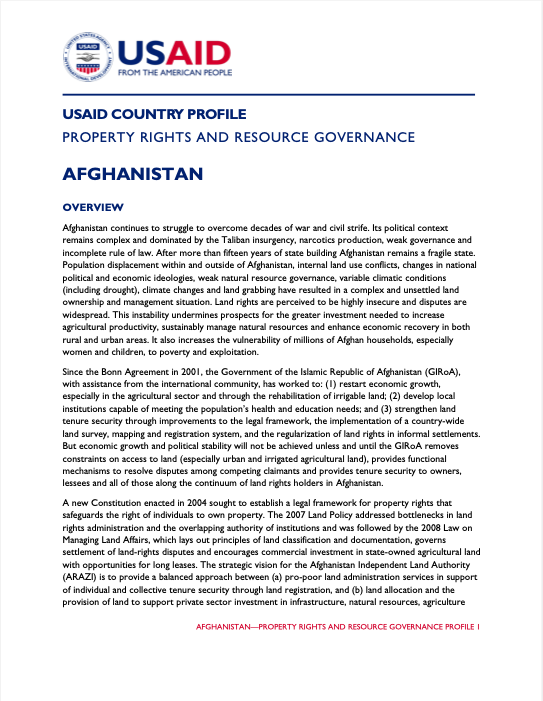Resource information
Afghanistan continues to struggle to overcome decades of war and civil strife. Its political context remains complex and dominated by the Taliban insurgency, narcotics production, weak governance and incomplete rule of law. After more than fifteen years of state building Afghanistan remains a fragile state. Population displacement within and outside of Afghanistan, internal land use conflicts, changes in national political and economic ideologies, weak natural resource governance, variable climatic conditions (including drought), climate changes and land grabbing have resulted in a complex and unsettled land ownership and management situation. Land rights are perceived to be highly insecure and disputes are widespread. This instability undermines prospects for the greater investment needed to increase agricultural productivity, sustainably manage natural resources and enhance economic recovery in both rural and urban areas. It also increases the vulnerability of millions of Afghan households, especially women and children, to poverty and exploitation.


